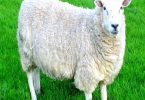South Africa’s Department of Environmental Affairs is increasingly seeing wildlife a commodity to be marketed rather than protected and a currency for community development. This was made clear yesterday [July 24] at a Parliamentary report-back on the management of rhinos. It outlined licensing the sale of rhino horn and the gift of hundreds of thousands of wild animals for community farming.
The Department’s position follows a month-long Rhino Laboratory held last year and was presented by a high-level panel consisting of Environmental Minister Edna Molewa as well as ministers of State Security David Mahlobo and Defence, Nosiviwe Mapisa-Nquakula.
Following a Constitutional Court ruling that overturned restrictions on domestic trade of rhino horn, Environmental Affairs has prepared and will soon roll out licensing to purchase horns ‘for personal use.’
Given that rhino horn within the country has little value other than the possibility of massive profits from its (presently illegal) marketing to Asia, Molewa was asked how the government planned to halt ‘leakage’ from domestic trade into criminal transnational syndicates. She said all state-owned (45 tonnes) and private horn would be listed and micro-chipped.
There are sophisticated poaching networks in the country killing over 1 000 rhinos a year, but it was not made clear what would stop game farmers non-listing horns and selling them to syndicates.
Molewa emphasized that commercial international trade in rhino horn was prohibited in terms of CITES and pointed out that export for personal use would require permits from both exporting and importing countries. She did not indicate how the ‘non-commercial use’ would be policed within main-use countries like Vietnam and China.
One rhino farmer, John Hume, is already broadcasting an on-line horn auction with websites in English, Chinese and Vietnamese, although Molewea said she had not heard of this.
In order to dis-incentivise local rural communities adjacent to national parks from becoming involved in transnational criminal syndicates, the Minister said 625 wild animals had been donated to emerging farmers, with a goal of 300 000 by 2030.
She did not elaborate how these farmers would contain such game or prevent it from being poached. Wildlife protection in Kruger Park is costing tens of millions of rand and requires sophisticated equipment and highly trained military type personnel.
Molewa reported that there had been success in the arrest of alleged poachers, with 359 arrested between January and June this year. There were 90 arrests within Kruger Park and 112 in adjacent areas. Game farmers have, however, expressed concern that KZN-Natal poaching kingpin, Dumisani Gwala is out on bail and has managed to get his trial postponed 14 times.























